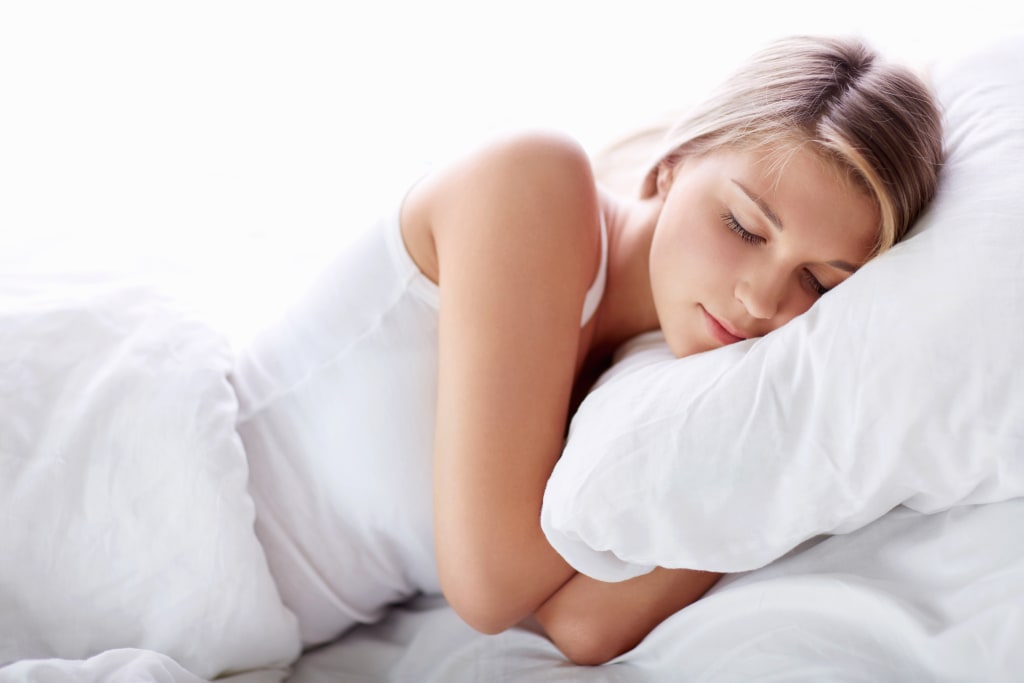
If your sleep is leaving a little... something to be desired, join the club! According to the CDC, one in three Americans don't get enough sleep, and two fifths of Americans report being tired most of the week. With the health problems that are linked to sleep-deprivation (weight gain, higher risk of heart disease, mental health problems) people everywhere are rushing for the secret to getting their eight hours.
So what are these secrets to better shut-eye? The secrets to cashing in your sleep debt? Don't worry, none of these include "selling your soul to Satan" or "sacrificing 30 virgins on a blood moon." No, all of these are tips that you can do today! Follow these tips, and you're sure to improve your sleep!
1. Ditch the Vices
Caffeine. Alcohol. Cigarettes. The holy trinity of every-day "drugs." These three things are the worst for regulating a steady sleep schedule.
Caffeine and nicotine are both stimulants. Stimulants, well, they stimulate the brain and heart. The more your brain is going, the harder it is to settle down for bed.
Then there's alcohol. Many adults over the age of 30 have reported having a glass of wine or at least a little bit of alcohol to help them sleep through the night. However, the effects can be adverse. Alcohol in larger servings can negatively affect the sleep schedule and the overall quality of sleep. Ditching these can help regulate your sleep time and quality.
2. Wake up and Fall Asleep at the Same Time
Our body is in a sleep/wake cycle called the circadian rhythm. The circadian rhythm, or your "body clock," controls when you should be asleep and when you should be awake. That being said, your body clock doesn't have a "weekend" setting.
Your circadian rhythm doesn't care if it's your day off. It doesn't care if you had a night out and want to sleep in. If you sleep in or go to sleep late, everything is thrown off. Staying up later will make you become drowsier later, making it harder to go to bed early. Setting an all-week alarm for when you go to bed and for when you wake up will help remedy this.
3. Save Your Bed for Sleep
This is mostly going to be a psychology lesson in classical conditioning. Classical conditioning was discovered by Ivan Pavlov, who made dogs associate the sound of a bell to food. Pavlov would ring a bell to signal the scientist to give the dogs food, then they would measure the amount of saliva the dogs produced. The procedure was repeated over and over, and the Pavlov began to notice that the dogs would start to salivate at the sound of the bell. The dogs learned that the bell meant food was coming, so their bodies started to react as if they were about to eat. The same principle can be applied to sleep.
If you sleep in your bed, your brain will associate your bed. Because of this, when you get in bed, your brain will recognize that it is time for bed. The process can be said for the opposite. If you are scrolling on Pinterest for hours in bed, your brain is going to associate your bed with activity. Because you are awake in your bed, your brain won't register it as a place to go to sleep, but a place to be awake.
You can easily fix this by saving all activity for outside of your bed. I know it's much comfier in your bed, but a full eight hours is definitely worth staying out of bed.
About the Creator
Cherub
I'm a writer, just like the rest of you.
"I drink, therefore I am-- or at least I think that how the saying goes" -Amigo the Devil






Comments
There are no comments for this story
Be the first to respond and start the conversation.